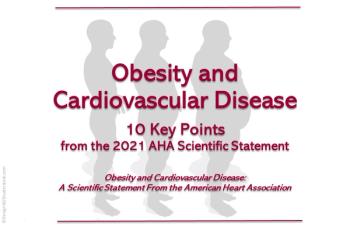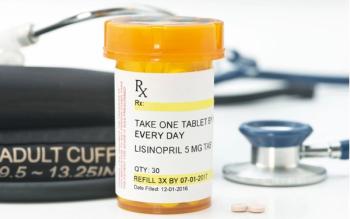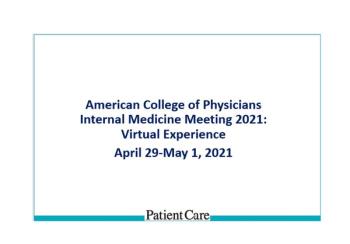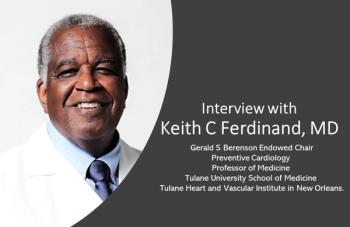
ACC.21: Black patients from disadvantaged neighborhoods were found almost 20% more likely to die within 5 years of MI than white patients from well-resourced ones in a new study.

ACC.21: Black patients from disadvantaged neighborhoods were found almost 20% more likely to die within 5 years of MI than white patients from well-resourced ones in a new study.

ACC.21: Findings from a study released in advance of the ACC annual meeting suggest that prediabetes confers nearly twice the risk of major cardiovascular events vs normoglycemia.

The links between obesity and cardiovascular disease are many, including direct cause and effect. Click through the 10-slide summary of a new AHA statement for a first look.

Primary care clinicians have an essential role in the diagnosis and treatment of chronic kidney disease. Click through a review of the basics.

ACC.21: High rates of obesity, hypertension, and hyperlipidemia found in Black women in their 20s and 30s are of significant concern, says the author of a study to be presented at the ACC meeting.

Atypical symptoms were most common among older patients with myocardial infarction, especially women, who called a non-emergency helpline for assistance, study authors found.

Robust analyses of urine metabolites detects poor adherence with prescribed treatment in T2D and is associated with prevalence of micro- and macrovascular complications.

"Risk estimators do not prescribe a drug," says Dr Lloyd-Jones. They are tools to help make the decision to prescribe the drug. He explains how to use them in primary care.

ACP: Clyde W Yancy, MD, gave a comprehensive update on a year's worth of pivotal science in treatment of heart failure. Here are the highlights.

Research shows that increased risk of chronic disease and mortality begins below a BMI classified as obesity. The earlier we intervene with at-risk patients, the greater the chance for success.

Authors of a new study say their findings suggest bariatric surgery should be considered first-line treatment for the management of obesity in patients with type 2 diabetes.

Among more than 2 million Americans admitted to the hospital for cannabis use, those with a cardiac arrhythmia were more than 4 times more likely to die while hospitalized than those without.

Long time cardiometabolic investigator Harold Bays, MD, talks about obesity, new drugs to treat the disease, and how the words "be inefficient" could change thinking about treatment.

Sex disparities in cardiovascular care in the VA system included less therapy with antiplatelet agents and any intensity statin for women with premature ASCVD than men.

A new study found that mobile-based ECG screening for AF could improve health outcomes among American Indian adults who have historically endured greater health disparities.

Study authors warn that ASA added to a medication regimen may be unintentional and call on clinicians to assess patients on DOACs for concomitant ASA and deprescribe.

Results of a new study show that young adults who exercise up to 5 hours per week have a reduced risk of developing hypertension later in life.

Keith C Ferdinand, MD, discusses how deeply-rooted social determinants of health have led to the vastly disproportionate impact of COVID-19 on persons of color.

Measures of heart function and anatomy were used to assess the effects of red and processed meat on cardiovascular health; findings were reported at ESC Preventive Cardiology 2021.

The indicator of vascular protection against atherosclerotic progression was inversely associated with incident CV events, independent of traditional CVD biomarkers and improved Framingham Risk Score prediction.

Post-hoc analysis of the SPRINT trial found greater time spent with systolic blood pressure in target range was significantly associated with decreased risk of MACE.

Jackson Heart Study participants who maintained a healthy BP, BMI, and never smoked were at lower risk for incident CVD, suggesting targets for intervention in high-risk populations.

In individuals with chronic coronary disease, the presence of diabetes increased the rate of death by 38% during a 5-year follow-up period in analysis of a worldwide patient registry.

A recent meta-analysis suggests some sodium glucose cotransporter-2 inhibitor agents may protect against atrial and ventricular arrhythmias as well as sudden cardiac death in type 2 diabetes patients.

Healthcare providers are advised to weigh carefully the risks vs benefits of continuing lamotrigine therapy and not to substitute with another drug from the class.